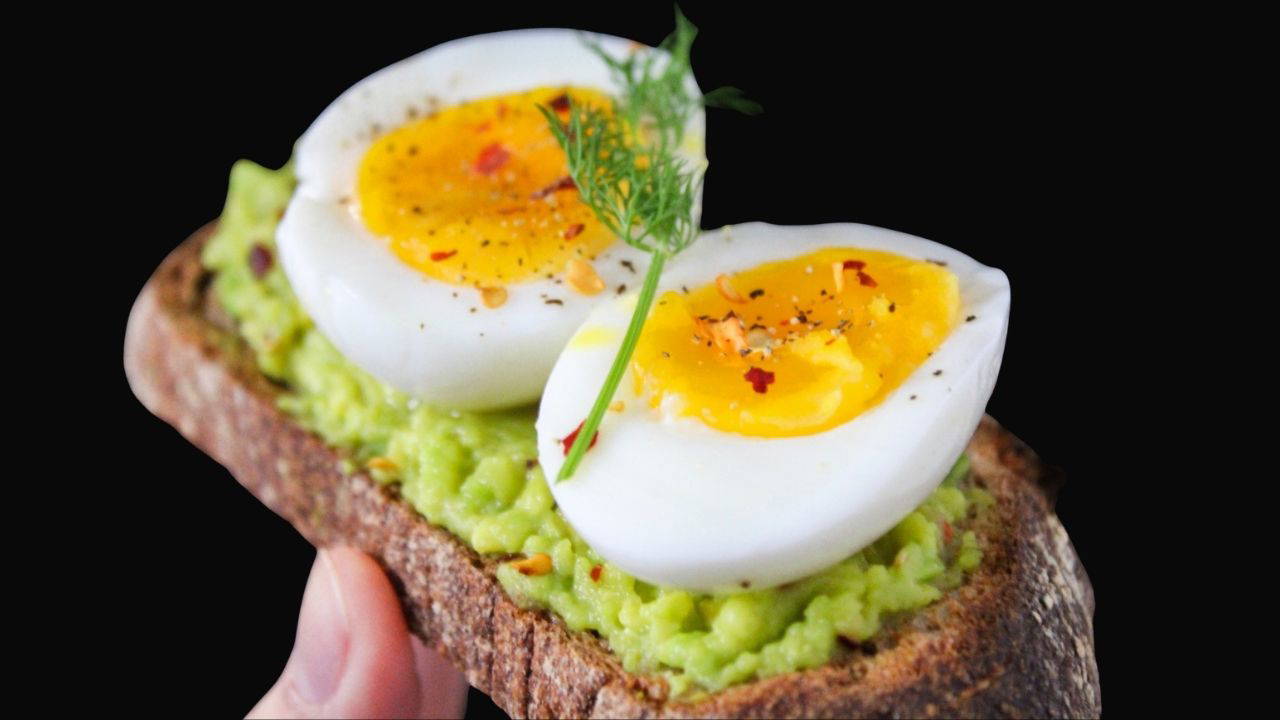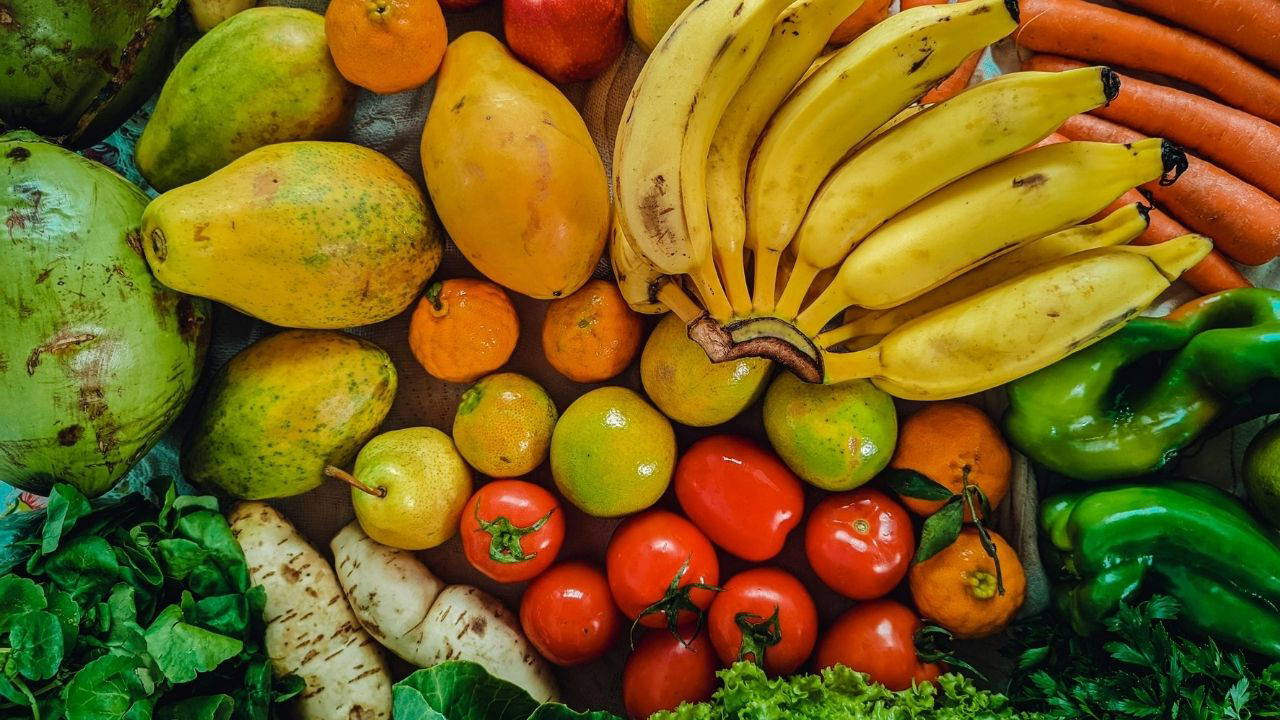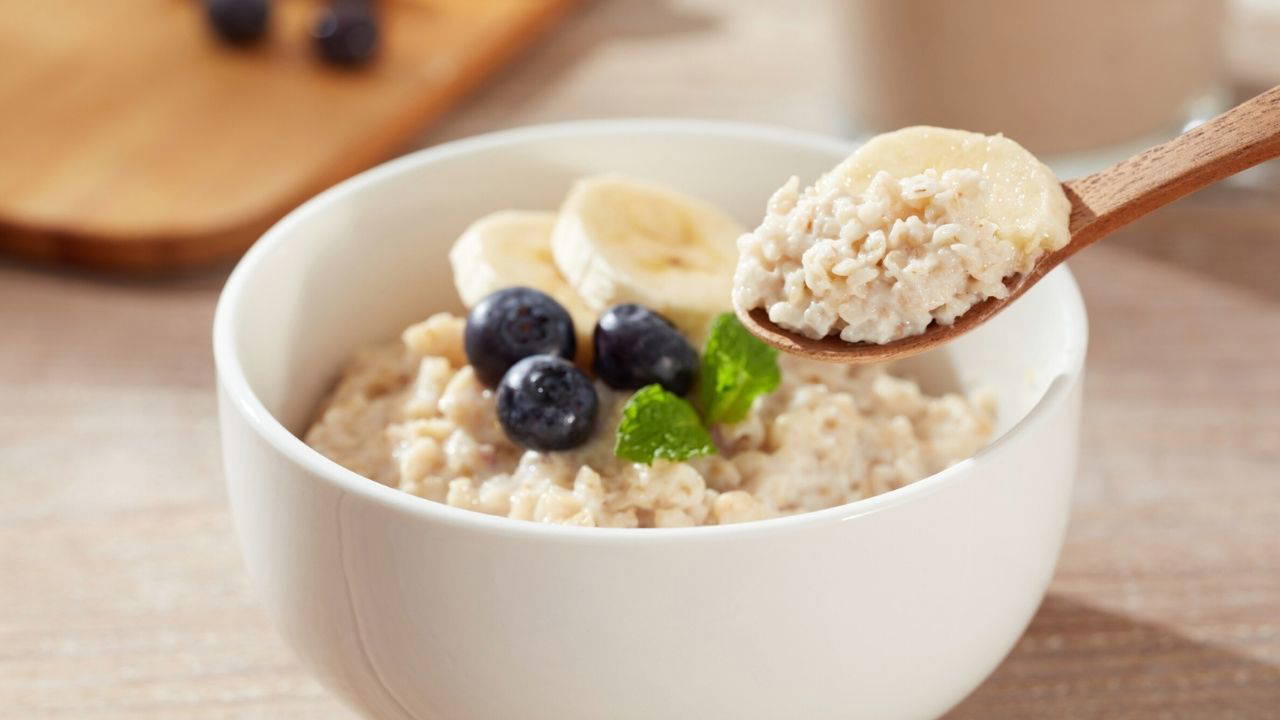What foods can help you sleep?

There are scientific studies that show that what we eat for dinner can improve our sleep quality.
For example, some limited studies have found that tart cherry juice may help people sleep better, while others have found that eating kiwi before bed is beneficial.
There is also some research that shows that warm milk can help us sleep.
It is thought that the high levels of tryptophan in milk, the substance from which the "sleep hormone" melatonin is synthesized in the body, may help with falling asleep.
Melatonin regulates the sleep/wake cycle. Our bodies produce more melatonin when it starts to get dark.

We can also get melatonin directly from foods like eggs, fish, nuts, and seeds.
There are numerous studies showing that consuming foods rich in melatonin can improve sleep quality and help us sleep longer.
However, there is also plenty of research showing that no specific food or drink is enough to improve sleep and that it's our overall diet that really matters.
"You can't eat poorly all day and then think that drinking a glass of cherry juice before bed is enough," says Marie-Pierre St-Onge, Ph.D., of the Nutrition Institute at Columbia University in New York.
Instead, he says, what we eat throughout the day can improve sleep quality.
What kind of a diet?Erica Jansen, an assistant professor of nutritional sciences at the University of Michigan in the US, says they have found that the most beneficial diet for sleep is a plant-based diet that includes plenty of whole grains, dairy products, and lean proteins, including fish.
In his 2021 study examining the relationship between sleep and nutrition, Jansen found that people who started eating more fruits and vegetables every day for three months could significantly improve their sleep quality.
Jansen found that women who consumed an additional three or four servings of fruits and vegetables per day were more than twice as likely to experience improvement in their insomnia symptoms.

One reason is that fruits and vegetables (along with meat, dairy, nuts, seeds, whole grains, and legumes) are generally rich in tryptophan.
Jansen says that the reason tryptophan is important is that it helps release serotonin, which is then converted into melatonin.
Often called the "happiness hormone," serotonin is a neurotransmitter found naturally in the body that regulates many important functions, including mood, sleep, appetite, and digestion.
However, simply eating tryptophan-rich foods isn't enough. They need to be combined with high-fiber carbohydrates like whole grains or legumes.
This helps improve sleep by ensuring it's properly digested and reaches the brain. A plant-rich diet is also thought to improve sleep quality by reducing inflammation in the body.
Another nutrient that helps improve sleep quality is magnesium, which calms the nervous system by helping reduce the stress hormone cortisol.
It is recommended that most adults over 30 consume approximately 420 mg of magnesium per day.
It's found in many foods, including leafy green vegetables like spinach, as well as legumes, nuts, seeds, and whole grains.
Another reason why magnesium improves sleep is its mental health benefits.
For example, there are studies that show that insufficient sleep and depression are closely linked.
A 2017 study found that taking a daily magnesium supplement led to a significant improvement in depression and anxiety, regardless of a person's age, gender, or severity of depression.
Broader research also suggests that a diet rich in fruits and vegetables may improve symptoms of depression.
Scientists agree that simply paying attention to what you eat at dinner isn't enough to save you from a bad night's sleep.
It is important to stop eating a few hours before bedtime.They also say that the timing of our meals throughout the day is important.
“One of the most important things to do before bed is to stop eating a few hours before bed,” Jansen says.
There is a small amount of research showing that eating earlier in the day, starting with breakfast, is associated with better sleep quality.
Studies show that eating your last meal before bed can make it take longer to fall asleep.
This is partly because it makes it easier for us to associate eating with day and night with sleep, Jansen says.
"When there's a clearer distinction between day and night, your brain more easily recognizes when it's time to sleep. The brain starts each morning refreshed, and exposure to light in the early morning is important for resetting our body clock," he says.

There's also research showing that eating a dairy-rich breakfast in bright sunlight is better for sleep than eating it in a dimly lit room.
Researchers say this is because eating during daylight helps our bodies release more melatonin at night.
On the other hand, science does not yet have a definitive answer as to whether the melatonin we get from plants affects the melatonin our body produces and how this may affect our sleep patterns.
The most beneficial diet for sleep appears to be a plant-rich diet. However, for those who can manage it, eating at regular intervals throughout the day can also be beneficial.
However, our diet is also linked to our other habits.
Scientists emphasize that our sleep quality is also affected by our level of activity during the day, our mental health, and our exposure to light and darkness.
Experts say it's important to distinguish between not being able to sleep and a sleep disorder such as insomnia or sleep apnea.
"If you have a sleep disorder, you need to get tested and treated. Improving your diet may be part of the treatment plan, but some people may need additional support," St-Onge says.
Cumhuriyet





